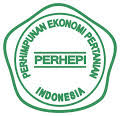Dampak Kredit Terhadap Ekonomi Rumah tangga Petani Kopi di Kabupaten Pati
DOI:
https://doi.org/10.25181/jofsa.v1i1.81Abstract
Plantation sub-sector is one of the agricultural sector mainstays of the foreign exchange and source of household farmers’ income. Plantation development is intended to make it more efficient, productive and competitive in order to increase the income of coffee farmers and their families. The main problem is the poverty of coffee farmers. Coffee plantations owned by coffee farmers in Pati are still dominated by small-scale enterprises, technologically simple, and low income. With low capital conditions, to help increase production and income of coffee farmers, loans are channeled through savings and loan program by Sido Makmur farmer group as an economic empowerment program for coffee farmer households. The aim of this research was to analyze the impact of the loans from Sido Makmur farmer groups toward household economy of coffee farmers. The study was conducted in coffee plantations in Klakahkasihan Village, Gembong, Pati. Cross - section data from Sido Makmur farmer group in Klakahkasihan village were collected directly from 52 respondents; they were 32 farmers who took the loans and 20 farmers who did not. The method used to analyze the data is simultaneous equation model. The results showed that loan has a negative impact on coffee production. It means that less amount of loan taken will improve coffee production. However, the loan has a positive impact on the non - food household consumption, meaning that greater loan taken will increase the household consumption of non – food goods. It can be concluded that this loan failed to help increase the production of coffee, because coffee farmers used it for the household consumption of non – food goods. Keywords: loan, household economy, coffee plantanation, Sido Makmur farmer group, Pati.Downloads
References
Asih D N. 2008. Dampak Kredit terhadap Usaha Perikanan dan Ekonomi Rumahtangga Nelayan Tradisional di Kabupaten Tojo Una-una Provinsi Sulawesi Tengah (Tesis) Institut Pertanian Bogor. 154 hlm.
Caillavet, F, Guyomard, H., & Lifran, R. 1994. Agricultural Household Modelling and Family Economic.Elsevier.
Ertherington, M.. 1984. Strategi Rehabilitasi Perkebunan Teh di Indonesia, hal. 109.
Husni, L. dan Dwi W. S. 2011. Perilaku Ekonomi Rumahtangga Petani Karet di Prabumulih dalam Alokasi Tenaga Kerja, Produksi dan Konsumsi. Universitas Sriwijaya. Palembang. (Tidak dipublikasikan).
Mahendri, I.G.A.P.,.2009. Analisis Efektivitas Kredit Ternak Domba dan Dampaknya terhadap Pendapatan Rumahtangga Petani Penerima Kredit di Kabupaten Bogor (Tesis). Institut Pertanian Bogor.
Mosher, A. T. 1978.Menggerakkan dan Membangun Pertanian, Syarat – syrat Pokok Perkembangan dan Modernisasi. Jakarta: CV. Yasaguna.
Nuswantara, B. 2012. Peranan Kredit Mikro dan Kecil terhadap Kinerja Usaha Kecil dan Ekonomi Wilayah di Provinsi Jawa Tengah. (Disertasi). Institut Pertanian Bogor
Patikab. 2014. Selayang Pandang Kopi. http://dishutbun.patikab.go.id/?p=25. [diunduh Tgl 19 Oktober 2015].
Quach, m. H., A. W. Mullineux, dan V. Murinde. (2005). Acces to Credit and Household Poverty Reduction in Rural Vietnam: A Cross – Sectional Study.University of Birmingham.
Rosmiati, M,. 2012. Pengaruh Kredit terhadap Perilaku Ekonomi Rumahtangga Petani Padi Sawah: Aplikasi Model Ekonomi Rumahtangga Usahatani. Jurnal Manajemen Teknologi. Vol. 11 No.2 2012: 1.
Setiawina, D.1980. Dalam Mencapai Tujuan Pembangunan Desa diperlukan Kemampuan Aparatur Pemerintah.http://djinar.wordpress.com/2011/06/26/dalam-mencapai-tujuan-pembangunan-desa-diperlukan-kemampuan-aparatur-pemerintah/. [diunduh Tgl 17 September 2014].
Susetyanto. 2012. Model Ekonomi Rumahtangga Petani Kedelai di Indonesia: Analisis Dampak Kebijakan terhadap Tenaga Kerja, Pendapatan, dan Pengeluaran (Disertasi). Institut Pertanian Bogor. Bogor. 259 hlm.
Downloads
Published
How to Cite
Issue
Section
License
Copyright (c) 2017 Journal of Food System & Agribusiness

This work is licensed under a Creative Commons Attribution-NonCommercial 4.0 International License.
With the receipt of the article by the Journal of Food System and Agribusiness Editorial Board and the decision to be published, then the copyright regarding the article will be diverted to the Journal of Food System and Agribusiness.
Politeknik Negeri Lampung as the publisher of the Journal of Food System and Agribusiness holds the copyright regarding all the published articles in this journal.
Politeknik Negeri Lampung has the right to multiply and distribute the article and every author is not allowed to publish the same article that was published in this journal.
The manuscript authenticity and copyright statement submission can be downloaded ON THIS FORM. Fill out the form and submit as a supplementary file.
All publications by Journal of Food System and Agribusiness is licensed under a Creative Commons Attribution Non-Commercial 4.0 International License.
























